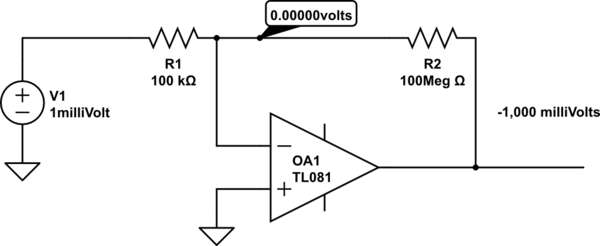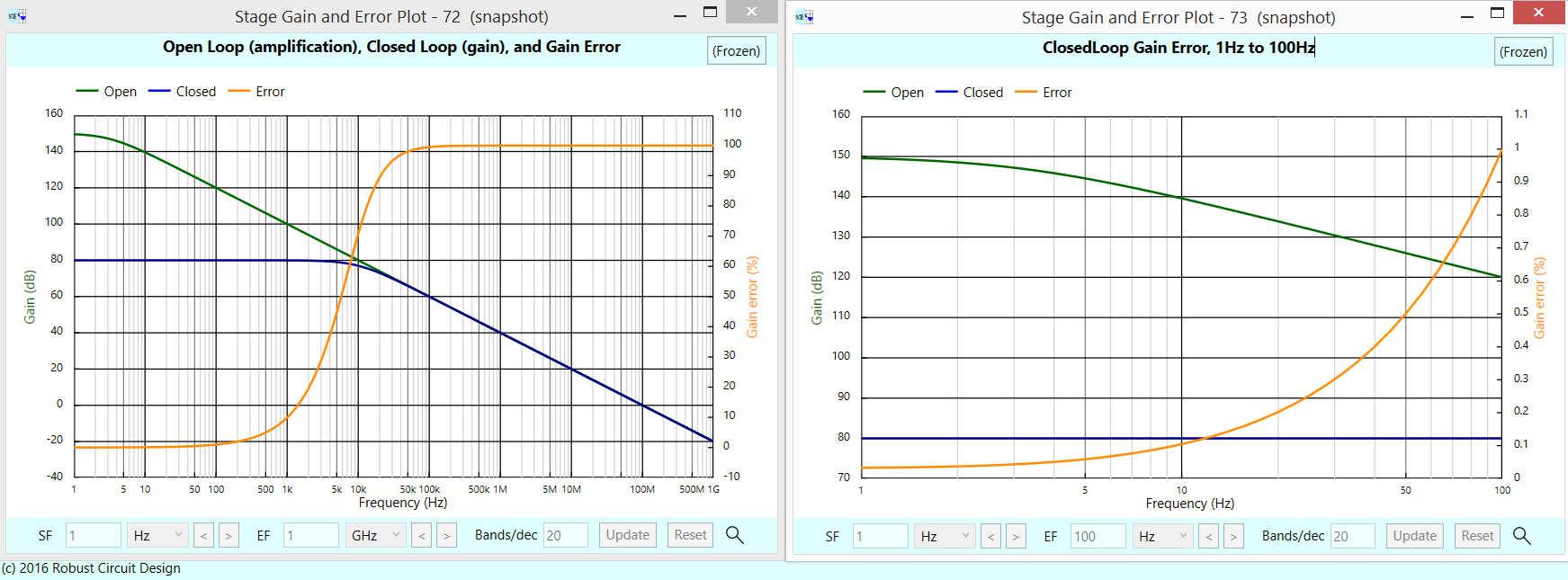(Ideal opamp discussed here)
I know
Vd=Vo/(V1-V2) ....eq 1
where Vd is differential gain, V1 and V2 are the voltage at the inverting and non inverting terminals and Vo is the output voltage.
Again
A=Vo/Vd,
(A = amplification)....eq 2
If V1=V2 then V1-V2=0 in equation 1 then Vd becomes infinite as eq1 becomes:
Vd=Vo/(V1-V2)
Vd=Vo/0 => Vd=infinite
As a result eq 2 becomes
A = Vo/Vd
A = Vo/infinity [ As Vd=infinity]
A = 0
But the book says the amplification is infinite in such a case.What is going on?


